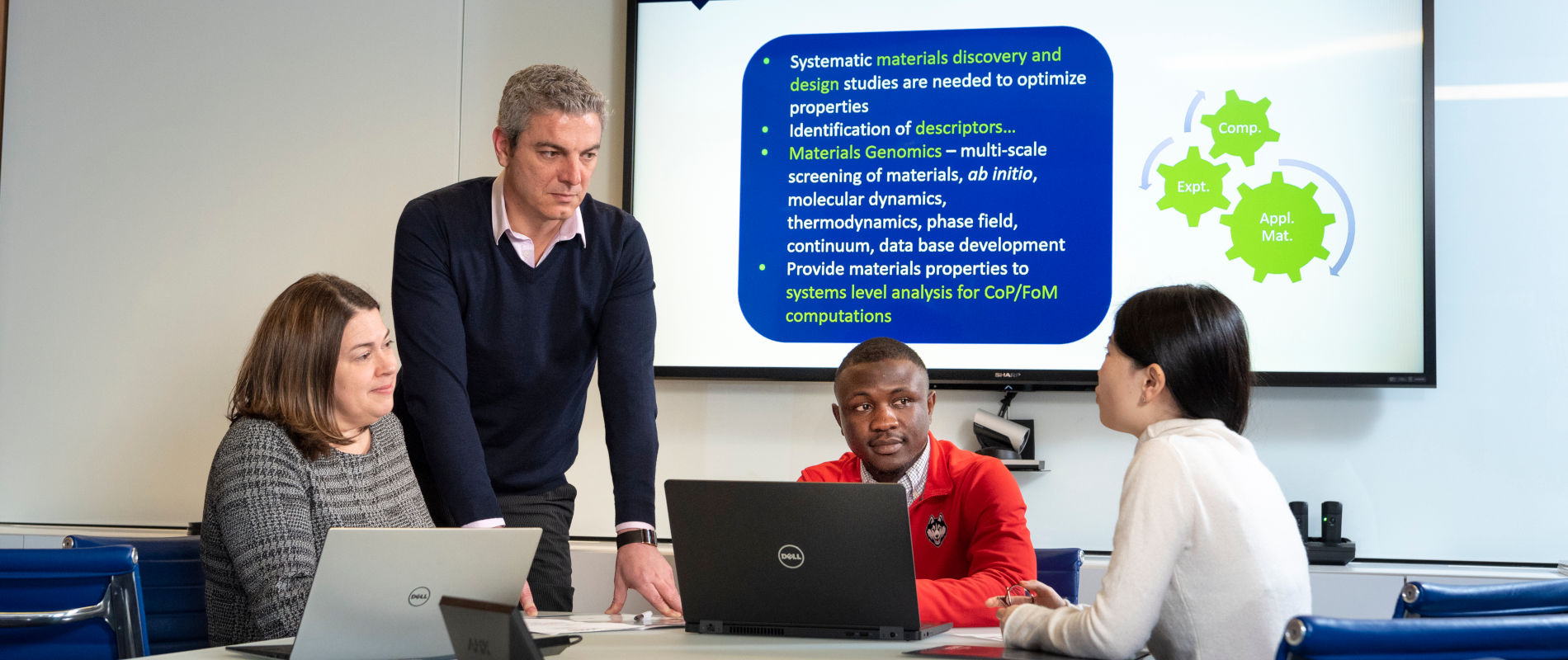
About Experiential Education
The UConn Engineering experiential education program is a teaching philosophy that provides different methodologies in which educators purposefully engage with students in direct experience and focused reflection in order to increase knowledge, develop skills, clarify values, and develop people's capacity to contribute to their communities. In essence, we help shape how students develop themselves through experience.
We provide different disciplines and settings utilize experiential education methodologies: internships, language based learning, place-based education, global education through our study abroad program, environmental education, student-oriented education, active learning in the classroom, co-ops, service learning, cooperative learning and expeditionary learning.
Why Experiential Education and Things That We Consider
Our student success is important and we take into account the following aspects of our Experiential Education Program:
- Students are engaged intellectually, emotionally, socially, soulfully and/or physically.
- The results of the learning are personal and form the basis for future experience and learning.
- Student relationships are developed and nurtured: student to self, student to others and learner to the world at large.
- The educator and student may experience success, failure, adventure, risk-taking and uncertainty, because the outcomes of experience cannot totally be predicted.
- Opportunities are nurtured for students and educators to explore and examine their own values through the college experience.
- Our primary roles include setting suitable experiences, posing problems, setting boundaries, supporting students, insuring intellectual safety, and facilitating the learning process.
What Happening @
 Engineering
Engineering
- Engineering Entrepreneurship: Collaborative Pitch Day Showcases UConn’s Best May 8, 2024
- Celebrating UConn’s Class of 2024 May 3, 2024
- UConn Students Earn NSF Graduate Research Fellowships May 2, 2024
- UConn Army ROTC Training – Both in the Forest and Classroom – Prepares Students for Future May 1, 2024
- Engineering Students Share Yearlong Research Projects During Senior Design Demo Day May 1, 2024
 The University
The University
- Wisdom for Graduates: ‘No One’s Gifts Are Worth Throwing Away’ May 7, 2024
- Physics Professor Nora Berrah Elected to National Academy of Sciences May 3, 2024
- UConn Students Earn NSF Graduate Research Fellowships May 2, 2024
- College of Engineering Launches New Collaboratory for Biomedical and Bioengineering Innovation April 30, 2024
- 2024 Commencement Speakers and Honorary Degree Recipients April 26, 2024
 The Community
The Community
- Health Disparities Institute Leader on a Community Mission to Make Change May 8, 2024
- Connecticut’s Only Primary Ciliary Dyskinesia Center Launches May 7, 2024
- Ask UConn Extension: Tips to Stop Bugging Out on the Trails May 7, 2024
- Ask UConn Extension: Getting an Early Start on Spring Gardens May 3, 2024
- UConn Army ROTC Training – Both in the Forest and Classroom – Prepares Students for Future May 1, 2024